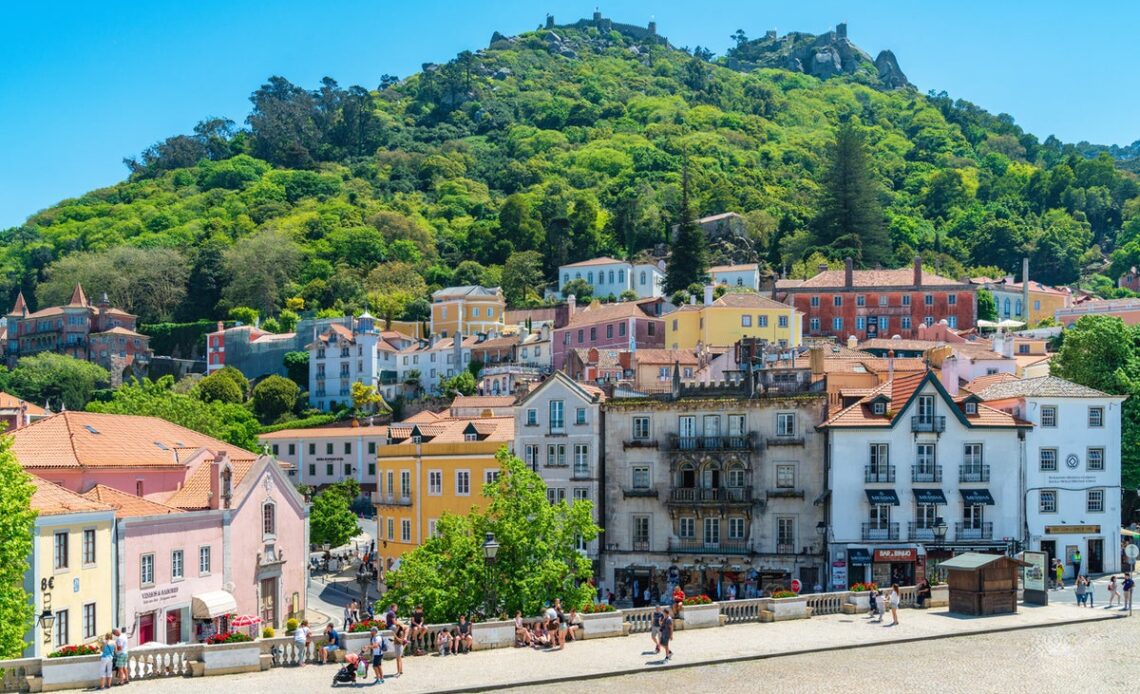It’s a Wednesday – a work day – when I find myself sipping lapsang souchong tea on the terrace of the Tivoli Palacio Seteais, in Portugal’s castle heartland of Sintra. I’m savouring not just the smoky flavour but the story of how, in 1662, Catherine of Braganza – the Portuguese wife of King Charles II – introduced the art of tea drinking to the English courts with a chest of this very variety. It’s an ideal way for a freelance writer to take a break while living and working as a digital nomad in Sintra, a historic town that day trippers from nearby Lisbon often consume in whirlwind fashion.
Overlooking a mist-soaked garden that climbs into the neighbouring hilltop, my cultured tea break is just one example of why Sintra is a better workplace than the usual for writers, entrepreneurs, consultants and small business owners alike. This small town is encouraging freelancers and remote workers to forgo Portugal’s established digital nomad hubs, like the Algarve and Madeira, and swap sun and sand for atmospheric fog and mountains.
Sintra has been inspiring creativity for centuries. Lord Byron dubbed it a “glorious Eden” during his visit in the 1800s, while it was described by a previous king as “where winter comes to spend the summer”. The town’s cooler climate has long provided an escape from the capital for nobility, hence its legacy of castles that the streets here spiral around.
Boundless Life’s Sintra co-working hub
(MaryLou Costa)
This is one of the reasons travel startup Boundless Life set up its first location in Sintra. The mix of nature and culture suits its aim of creating a “village within a village” concept, specifically aimed at digital nomads travelling with children – people like my husband and me. There are central apartments and co-working spaces, plus an education and childcare facility for children aged one to 12, which means I can bring my three-year-old along and still spend an afternoon decadently drinking tea.
I chat to Marcos Carvalho, one of Boundless Life’s co-founders, about how working parents have so far been excluded from the digital nomad trend, and how his new venture aims to change that. He hopes to entice young families to take a “workcation” of at least one month to mix some travel and culture with the nine-to-five, with the possibility of doing it for a year or more.
“We want to show it’s possible to live this way. It’s not as hard as you may think, or as ‘alternative’ or…
Click Here to Read the Full Original Article at The Independent Travel…
